This article relies largely or entirely on a single source .(February 2011) |
John Egan (1750?-1810) was an Irish barrister, politician, and chairman of Kilmainham, County Dublin.
This article relies largely or entirely on a single source .(February 2011) |
John Egan (1750?-1810) was an Irish barrister, politician, and chairman of Kilmainham, County Dublin.
Egan was born around 1750 at Charleville, County Cork, where his father was a beneficed clergyman. Having entered Trinity College Dublin, as a sizar, he graduated there B.A. 1773, and LL.B. 1776; the degree of LL.D. (honoris causa) was conferred upon him in 1790.
He was called to the Irish bar in 1778, and, mainly through the friendship of Barry Yelverton, 1st Viscount Avonmore, chief baron of the exchequer, he made his way in the profession. In due course he received his silk gown; in 1787 he was elected a bencher of the King's Inns, Dublin; and for several years before his death he held the judicial office of chairman of Kilmainham.
He had taken a large share of business as a practising barrister, but a quarrel with Henry Grattan damaged him professionally. In the Irish House of Commons he for some years represented the borough of Tallaght, County Waterford, prominent on the question of the legislative union of Great Britain and Ireland. He died in 1810.

The Royal Hospital Kilmainham in Kilmainham, Dublin, is a former 17th-century hospital at Kilmainham in Ireland. The structure now houses the Irish Museum of Modern Art and is a concert venue.

Kilmainham Gaol is a former prison in Kilmainham, Dublin, Ireland. It is now a museum run by the Office of Public Works, an agency of the Government of Ireland. Many Irish revolutionaries, including the leaders of the 1916 Easter Rising, were imprisoned and executed in the prison by the orders of the UK Government.
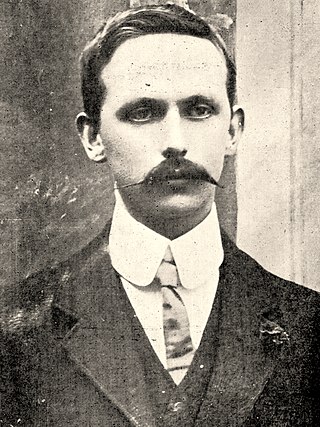
Éamonn Ceannt, born Edward Thomas Kent, was an Irish republican, mostly known for his role in the Easter Rising of 1916.

The Irish National Invincibles, usually known as the Invincibles, were a militant organisation based in Ireland active from 1881 to 1883. Founded as splinter group of the Irish Republican Brotherhood, the group had a more radical agenda, and was formed with an intent to target those who implemented English policies in Ireland.
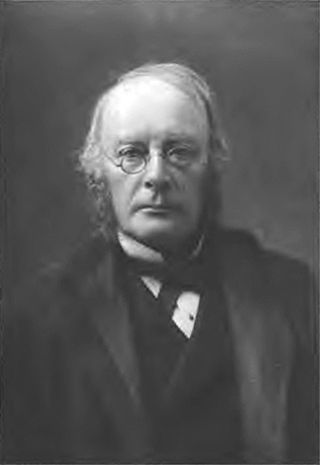
Sir Samuel Ferguson was an Irish poet, barrister, antiquarian, artist and public servant. He was an acclaimed 19th-century Irish poet, and his interest in Irish mythology and early Irish history can be seen as a forerunner of William Butler Yeats and the other poets of the Irish Literary Revival.
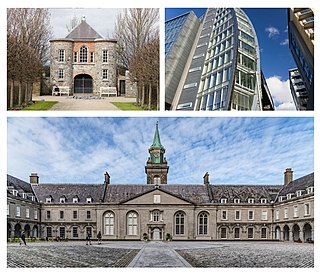
Kilmainham is a south inner suburb of Dublin, Ireland, south of the River Liffey and west of the city centre. It is in the city's Dublin 8 postal district.
Events from the year 1916 in Ireland.
Dermot Gleeson SC is an Irish barrister who served as Attorney General of Ireland from 1994 to 1997.
John Egan may refer to:
Sir Samuel Bradstreet, 3rd Baronet was an Irish politician, barrister and judge. His independence of mind as a politician gave rise to the somewhat misleading nickname "Slippery Sam".

Thomas Joseph Campbell, known as T. J. Campbell, was an Irish politician, barrister, journalist, author and judge.
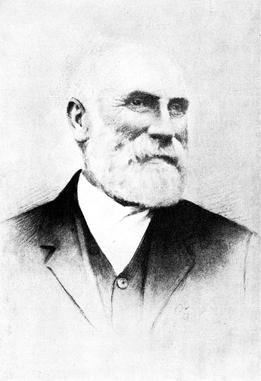
Andrew Joseph Kettle (1833–1916) was a leading Irish nationalist politician, progressive farmer, agrarian agitator and founding member of the Irish Land League, known as 'the right-hand man' of Charles Stewart Parnell. He was also a much admired old friend of the nationalist politician, Frank Hugh O'Donnell, and the poet and novelist Katharine Tynan.
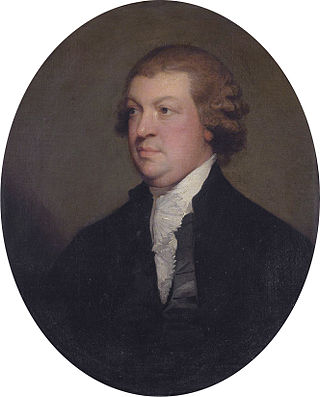
John Scott, 1st Earl of Clonmell PC (Ire) KC SL, known as The Lord Earlsfort between 1784 and 1789 and as The Viscount Clonmell between 1789 and 1793, was an Irish barrister and judge. Sometimes known as "Copperfaced Jack", he was Lord Chief Justice of the King's Bench for Ireland from 1784 to 1798.
The Manor of Kilmainham was a manor encompassing the village of Kilmainham in County Dublin, Ireland, just outside the city of Dublin. It one of several manors, or liberties, that existed in Dublin after the arrival of the Anglo-Normans in the 12th century. The manors were town lands united to the city, but still preserving their own jurisdiction.
Samuel Turner (1765–1807) was an Irish barrister, a Protestant supporter of the United Irishmen in Newry who in 1797 escaped to the European continent, changed loyalties, and informed the British and Irish authorities of United Irish activity and personnel in Ireland, Hamburg, and Paris.
Joseph Henderson Singer (1786–1866) was an Irish Anglican bishop in the Church of Ireland in the 19th century.
Thomas de Burley was an English-born monk who served as a Crown official and judge in fourteenth-century Ireland. He held office twice as Lord Chancellor of Ireland. He was the Irish Prior of the Order of St. John of Jerusalem, whose Dublin house was at Kilmainham, from 1356 till his death. He had a reputation for corruption, and for vindictiveness towards his opponents, but he could also show courage and determination, especially in combat.

Anthony Malone was an Irish lawyer and politician.
Sir James Keating was an Irish cleric and statesman of the fifteenth century. He was Prior of the Irish house of the Knights Hospitallers, which was based at Kilmainham, Dublin, and a member of the Privy Council of Ireland.
Octavian De Spinellis or Ottaviano de Palatio was Archbishop of Armagh from 1478 until 1513.
![]() This article incorporates text from a publication now in the public domain : "Egan, John". Dictionary of National Biography . London: Smith, Elder & Co. 1885–1900.
This article incorporates text from a publication now in the public domain : "Egan, John". Dictionary of National Biography . London: Smith, Elder & Co. 1885–1900.